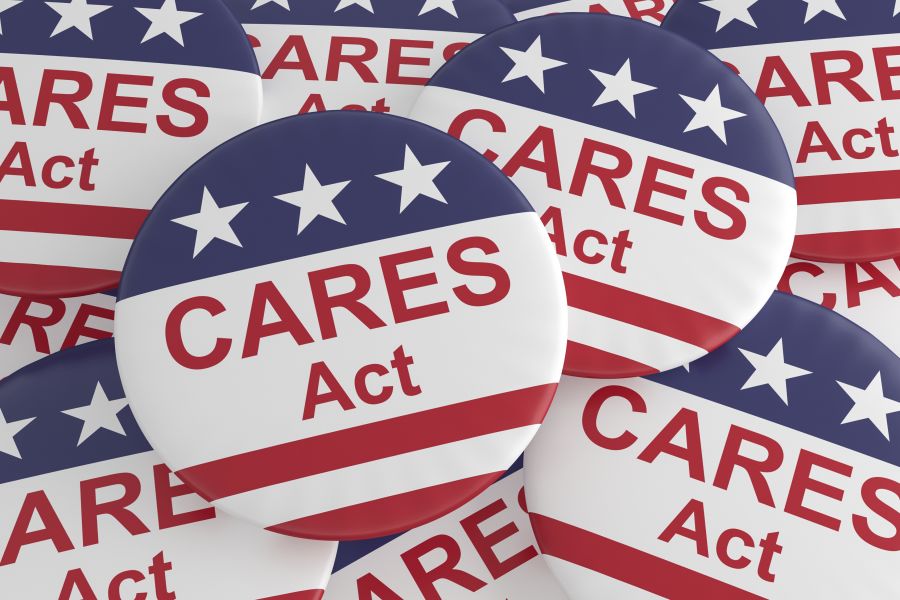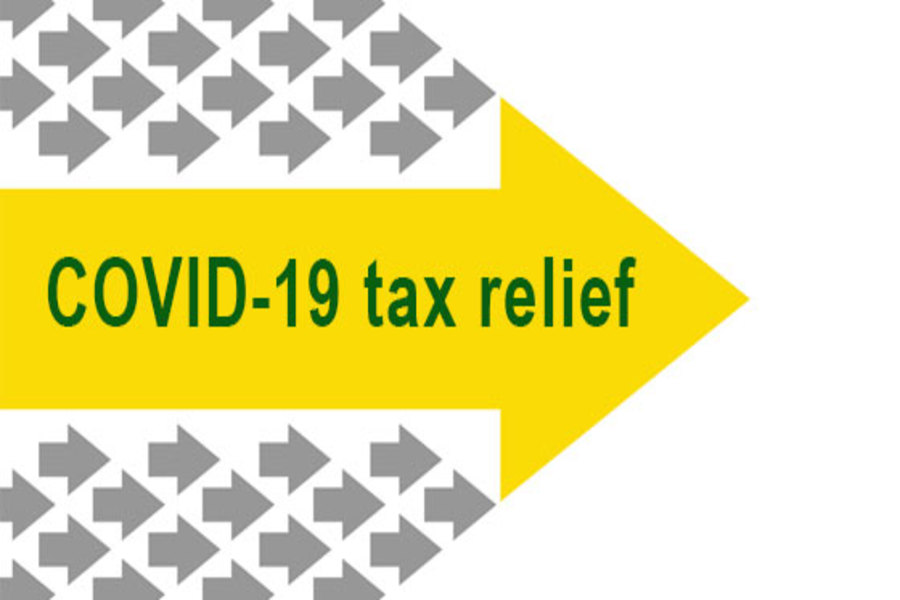In an Information Release (IR 2020-61), the Treasury Department and IRS have announced that distribution of economic impact payments, made as part of the Coronavirus Aid, Relief, and Economic Security Act (the CARES Act), will begin in the next three weeks and will be distributed automatically, with no action required for most people. However, people who did not file 2018 or 2019 federal income tax returns will need to submit "a simple tax return" to receive the stimulus payment. The Information Release answers the following questions: Who is eligible for the economic impact payment? Tax filers with adjusted gross income up to $75,000 for individuals and up to $150,000 for married couples filing joint returns will receive the full payment. For filers with income above those amounts, the payment...

On March 27, the President signed into law the Coronavirus Aid, Relief, and Economic Security Act (CARES Act, PL 116-136). Among other provisions, the CARES Act contains several new SBA loan and debt relief programs, including the: Paycheck Protection Program, Economic Injury Disaster Loans, and SBA debt relief, for the self-employed, independent contractors, and small and large businesses suffering economic damage from the Coronavirus (COVID-19) outbreak. The Small Business Administration (SBA) has a new website called Coronavirus (COVID-19): Small Business Guidance and Loan Resources. The new website includes information on the aforementioned new SBA programs that were enacted as part of the CARES Act, as well as information on the following SBA Express Bridge Loans and other guidance/resources: SBA Express Bridge Loan Pilot Program SBA Economic Injury...
This post provides expanded coverage of the CARES Act, Congress’s gigantic economic stimulus package that the President signed into law on March 27, 2020. PROVISIONS AFFECTING INDIVIDUALS Recovery rebates for individuals To help individuals stay afloat during this time of economic uncertainty, the government will send up to $1,200 payments to eligible taxpayers and $2,400 for married couples filing joints returns. An additional $500 additional payment will be sent to taxpayers for each qualifying child dependent under age 17 (using the qualification rules under the Child Tax Credit). Rebates are gradually phased out, at a rate of 5% of the individual’s adjusted gross income over $75,000 (singles or marrieds filing separately), $122,500 (head of household), and $150,000 (joint). There is no income floor or ‘‘phase-in’’—all recipients who are under...
The Coronavirus Aid, Relief, and Economic Security (CARES) Act signed by President Trump on 3/27/2020 provides a variety of tax and financial relief measures to help Americans during the Coronavirus (COVID-19) pandemic. This post explains some of the CARES Act tax relief for individuals. Individual cash payments Under the new law, an eligible individual will receive a cash payment equal to the sum of: $1,200 ($2,400 for eligible married couples filing jointly) plus $500 for each qualifying child. Eligibility is based on adjusted gross income (AGI). Individuals who have no income, as well as those whose income comes entirely from Social Security benefits, are also eligible for the payment. The AGI thresholds will be based on 2019 tax returns, or 2018 returns if you haven’t yet filed your 2019...
On 3/27/20, President Trump signed into law another coronavirus (COVID-19) law. The CARES Act provides more tax relief for businesses employers. Here are some of the tax-related provisions in the Coronavirus Aid, Relief, and Economic Security Act. Employee retention credit The new law provides a refundable payroll tax credit for 50% of wages paid by eligible employers to certain employees during the COVID-19 crisis. Employer eligibility. The credit is available to employers with operations that have been fully or partially suspended as a result of a government order limiting commerce, travel or group meetings. The credit is also provided to employers that have experienced a greater than 50% reduction in quarterly receipts, measured on a year-over-year basis. The credit isn’t available to employers receiving Small Business Interruption Loans under...
(This is Blog Post #774)...
The IRS and Congress have responded with some Coronavirus tax relief for individuals. Taxpayers now have more time to file their tax returns and pay any tax owed because of the coronavirus (COVID-19) pandemic. The Treasury Department and IRS announced that the federal income tax filing due date is automatically extended from April 15, 2020, to July 15, 2020. Taxpayers can also defer making federal income tax payments, which are due on April 15, 2020, until July 15, 2020, without penalties and interest, regardless of the amount they owe. This deferment applies to all taxpayers, including individuals, trusts and estates, corporations and other non-corporate tax filers as well as those who pay self-employment tax. They can also defer their initial quarterly estimated federal income tax payments...
Businesses across the country are being affected by the worldwide pandemic. Fortunately, Congress recently passed Coronavirus tax relief for small businesses. In a separate development, the IRS has issued guidance allowing taxpayers to defer any amount of federal income tax payments due on April 15, 2020, until July 15, 2020, without penalties or interest. New law On March 18, the Senate passed the House's Coronavirus bill, the Families First Coronavirus Response Act. President Trump signed the bill that day. It includes: Paid leave benefits to employees, Tax credits for employers and self-employed taxpayers, and FICA tax relief for employers. Tax filing and payment extension In Notice 2020-18, the IRS provides relief for taxpayers with a federal income tax payment due April 15, 2020. The due date for making federal income...
(This is Blog Post #768)...
It’s bad enough that the living have to worry about identity theft. But criminals also exploit the deceased with “ghosting” schemes. These thieves are stealing the identities of the dead to open credit card and service accounts and obtain loans and tax refunds. Here’s how to prevent fraudsters from taking advantage of your family. Stealing the identities of the dead: window of opportunity Months may elapse between the time a person dies and when financial institutions, credit bureaus and government entities update their records. This provides fraudsters with a big window of opportunity. Making identity theft even easier is the fact that victims aren’t around to monitor their finances and grieving families are often occupied with other matters. It can take as long as 60 days for a...











